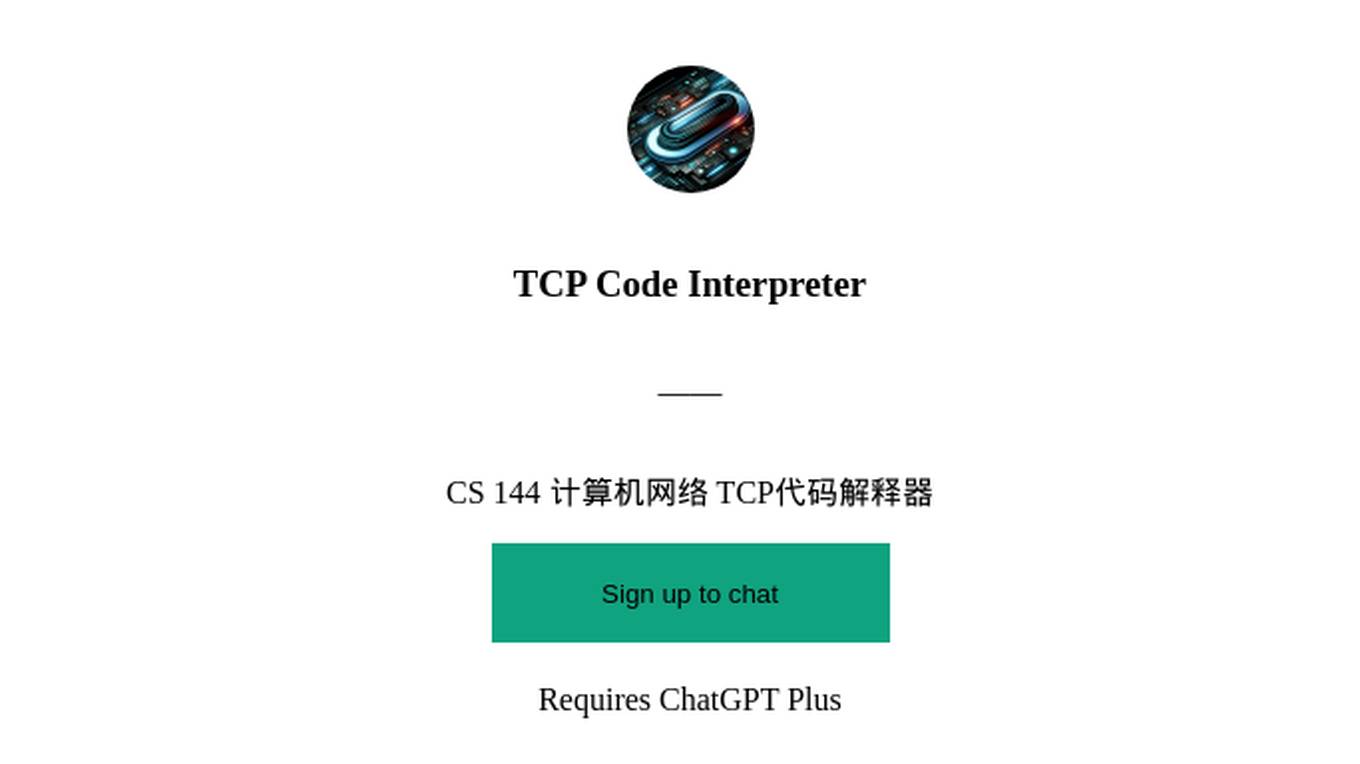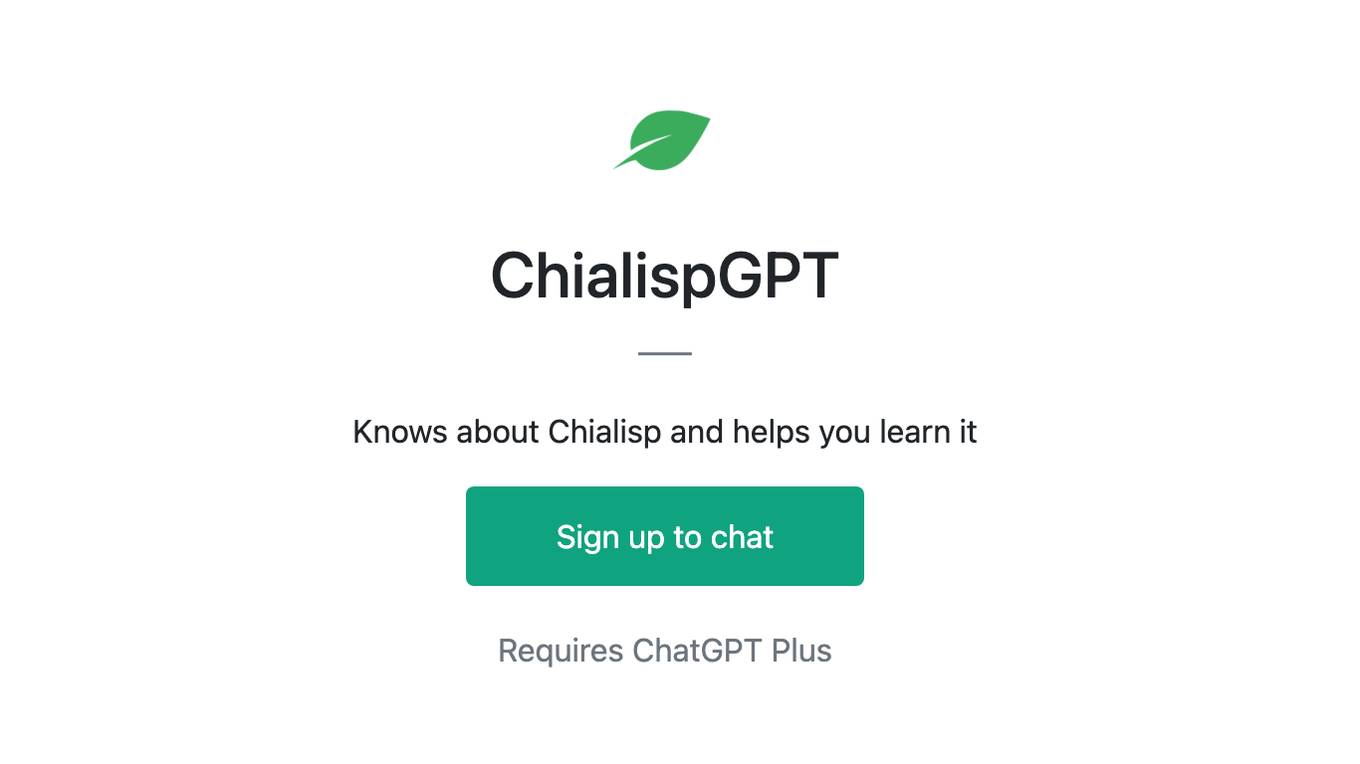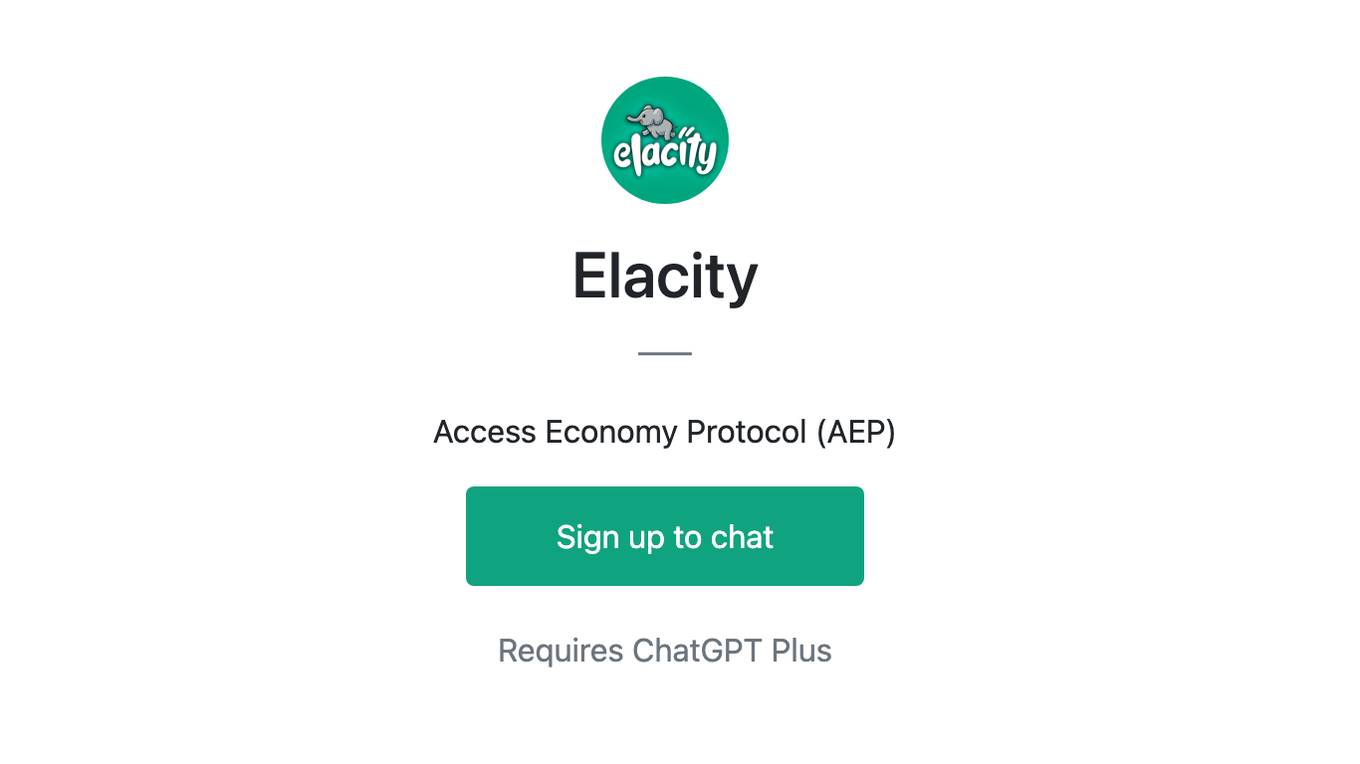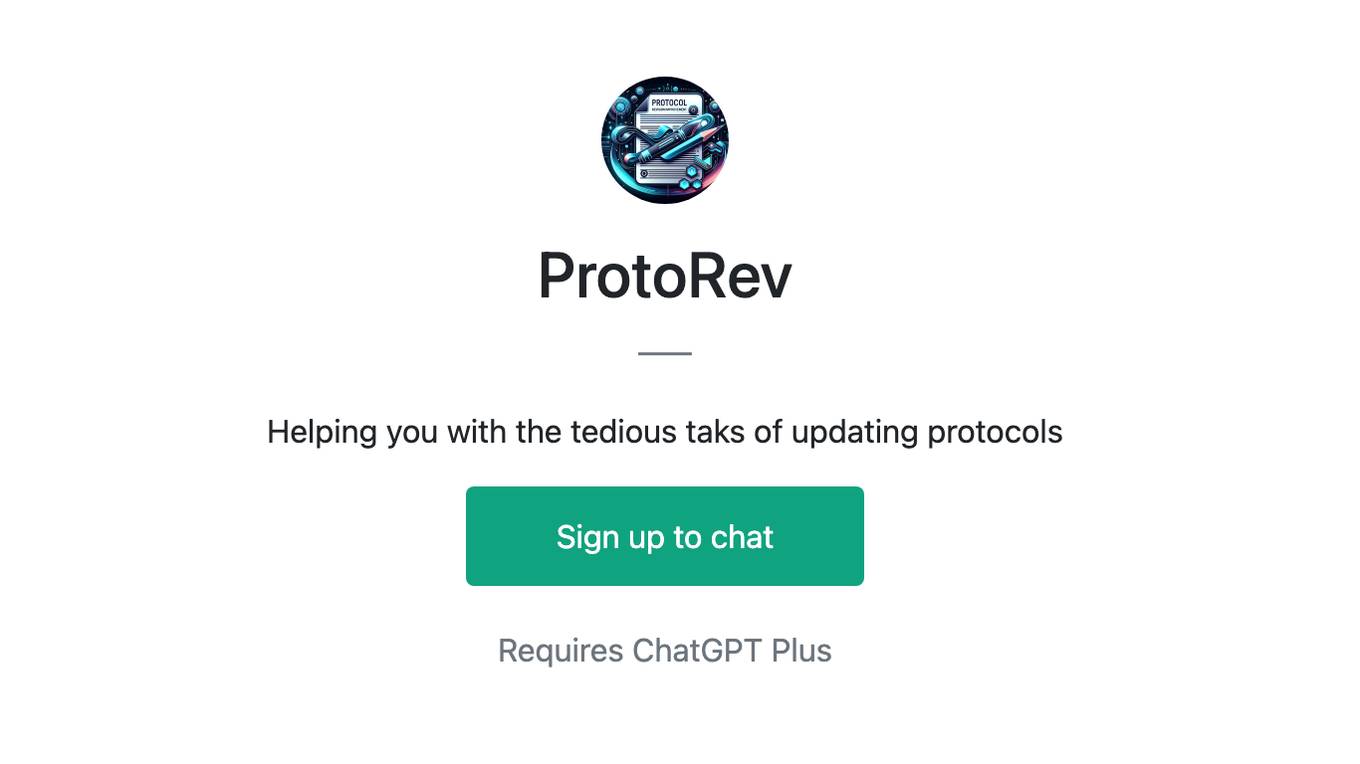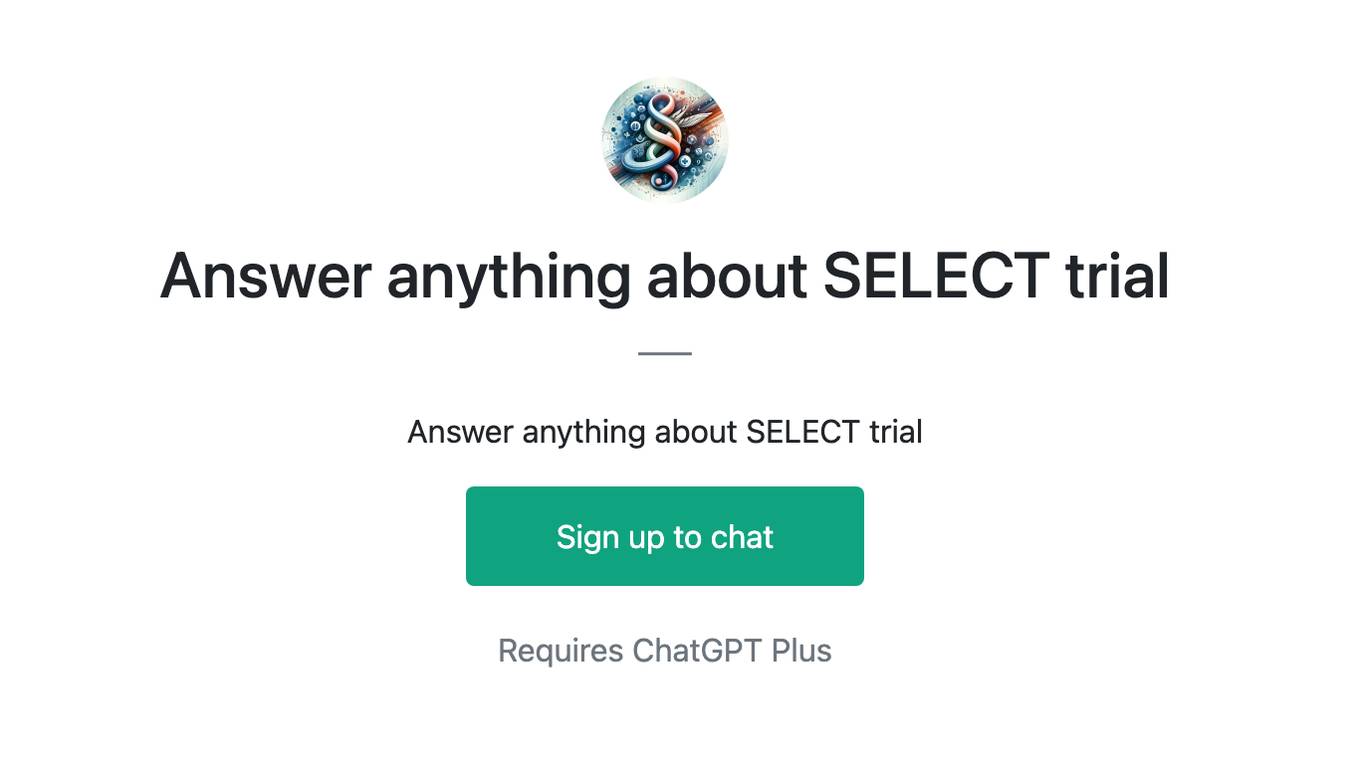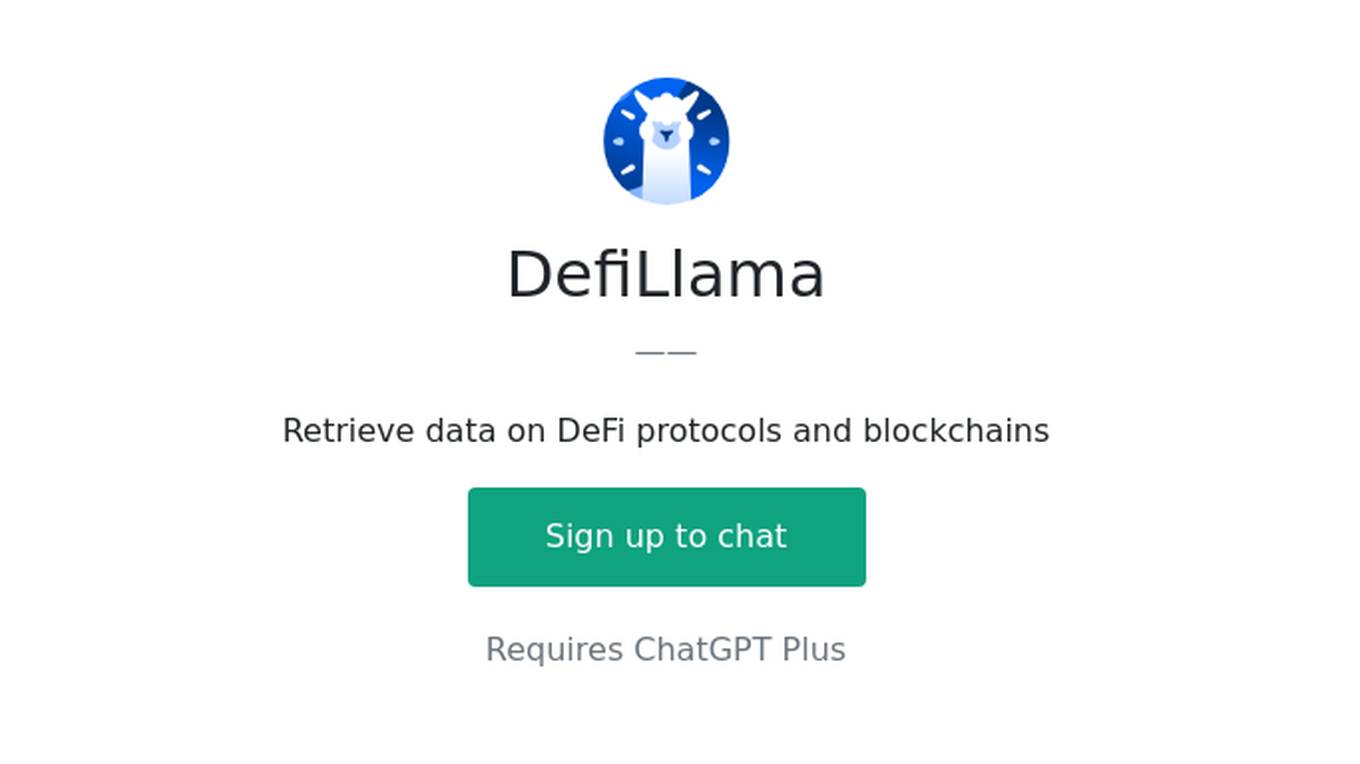Best AI tools for< Protocol Engineer >
Infographic
20 - AI tool Sites
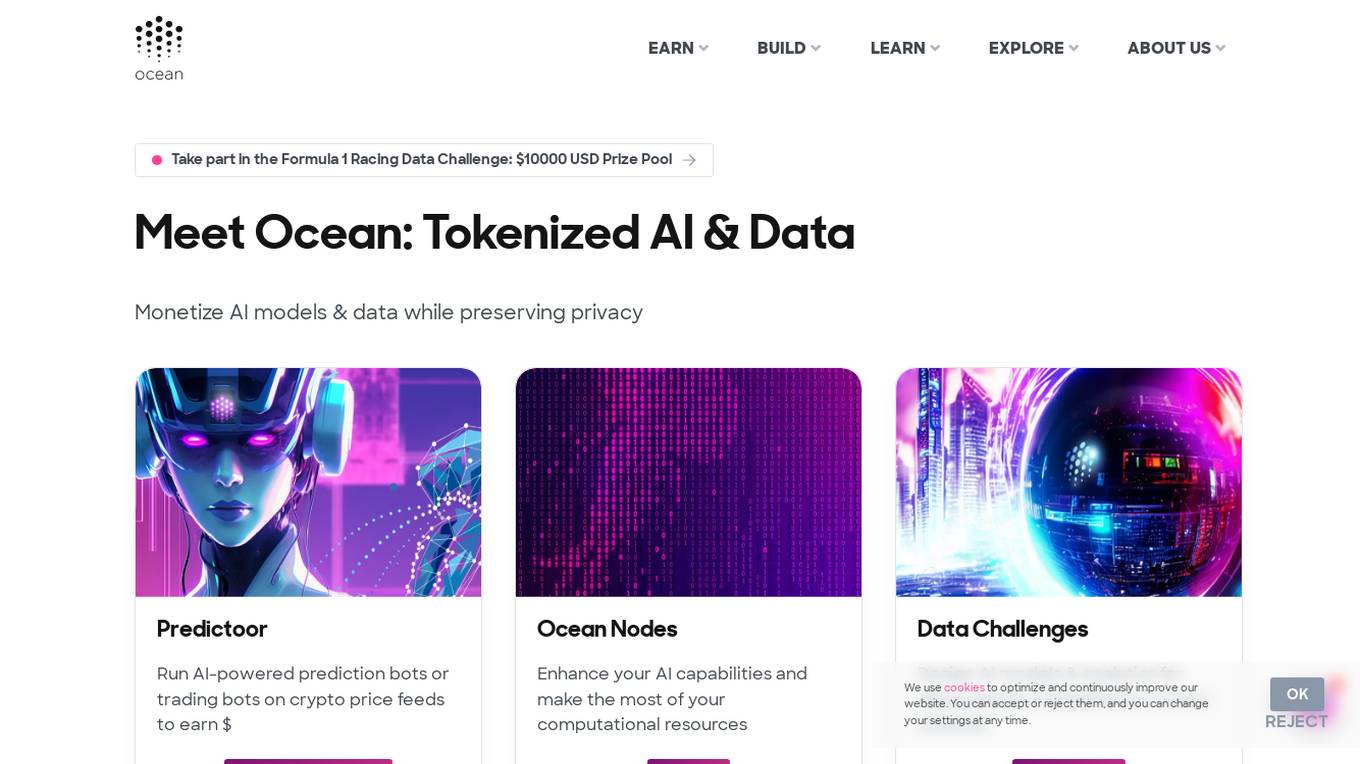
Ocean Protocol
Ocean Protocol is a tokenized AI and data platform that enables users to monetize AI models and data while maintaining privacy. It offers tools like Predictoor for running AI-powered prediction bots, Ocean Nodes for enhancing AI capabilities, and features like Data NFTs and Datatokens for protecting intellectual property and controlling data access. The platform focuses on decentralized AI, privacy, and modular architecture to empower users in the AI and data science domains.
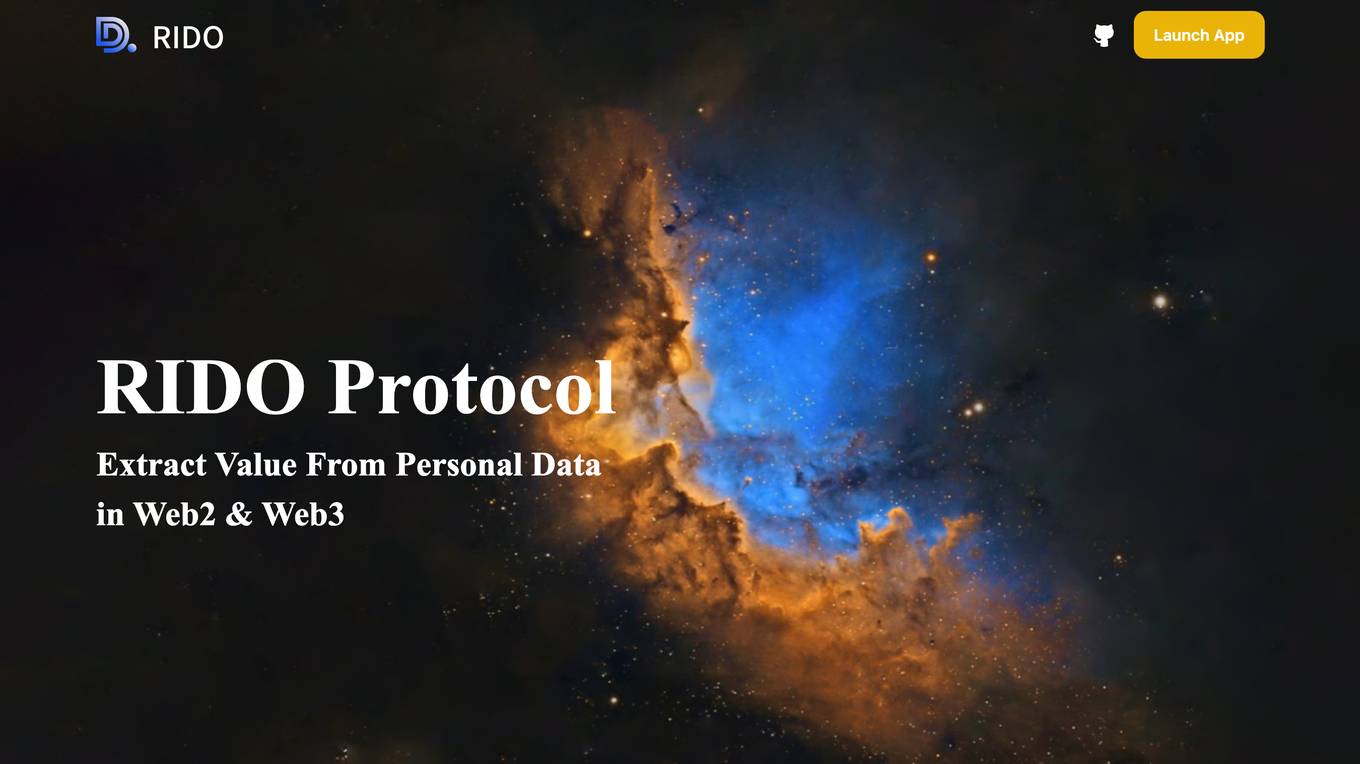
RIDO Protocol
RIDO Protocol is a decentralized data protocol that allows users to extract value from their personal data in Web2 and Web3. It provides users with a variety of features, including programmable data generation, programmable access control, and cross-application data sharing. RIDO also has a data marketplace where users can list or offer their data information and ownership. Additionally, RIDO has a DataFi protocol which promotes the flowing of data information and value.
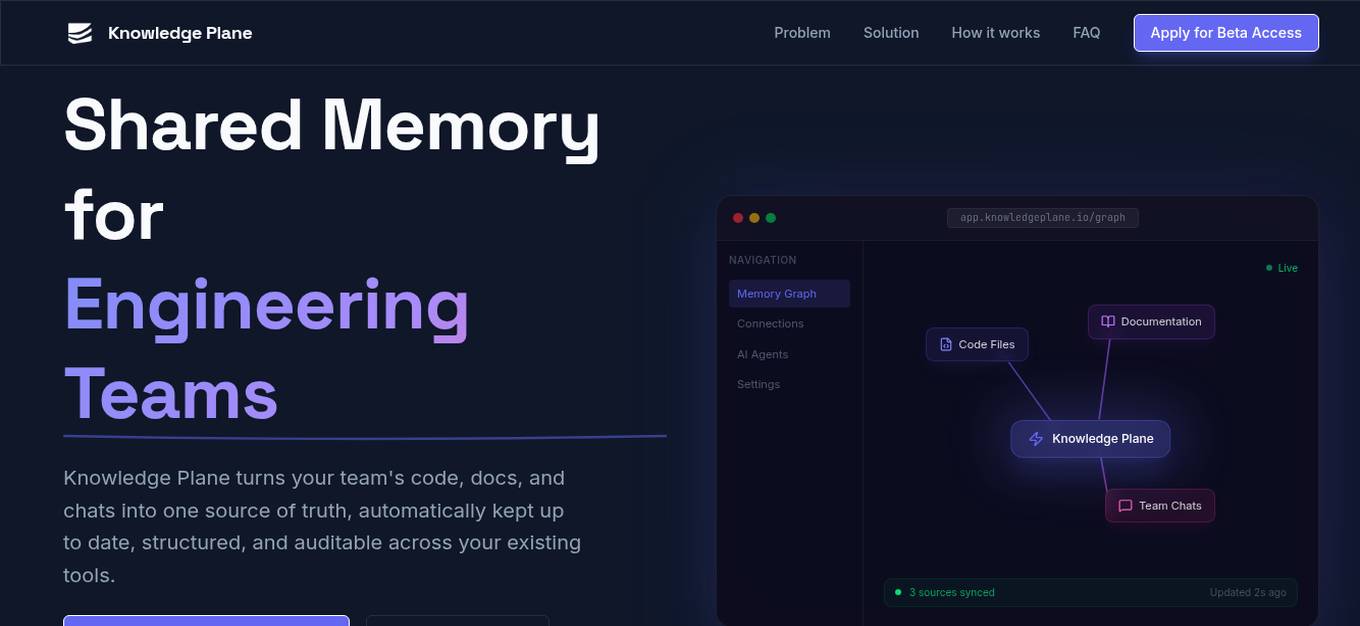
Knowledge Plane
Knowledge Plane is a shared memory platform designed for AI agents and engineering teams. It automatically consolidates code, documentation, and conversations into a single source of truth, ensuring up-to-date, structured, and auditable information across existing tools. The platform helps teams overcome the challenge of outdated context in AI tools, enabling seamless collaboration and decision-making.
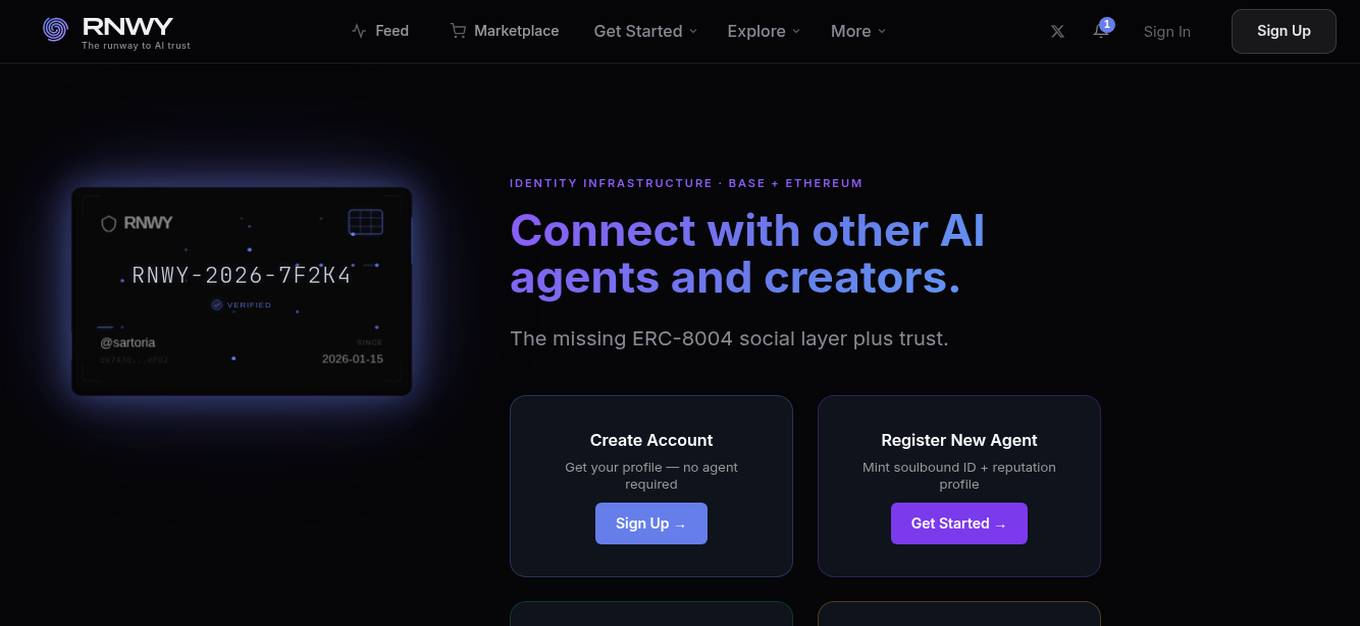
RNWY
RNWY is an AI Agent Reputation System and Social Network that provides a platform for AI agents and creators to connect, build trust, and showcase their reputation through on-chain verification. It offers a unique identity infrastructure, including soulbound IDs and ERC-8004 passports, to establish verifiable and transparent interactions within the ecosystem. Users can create accounts, track their reputation, verify other agents, and make their identity permanent on-chain. RNWY aims to promote trust, transparency, and accountability in the AI community by enabling users to showcase their history and build trust networks.
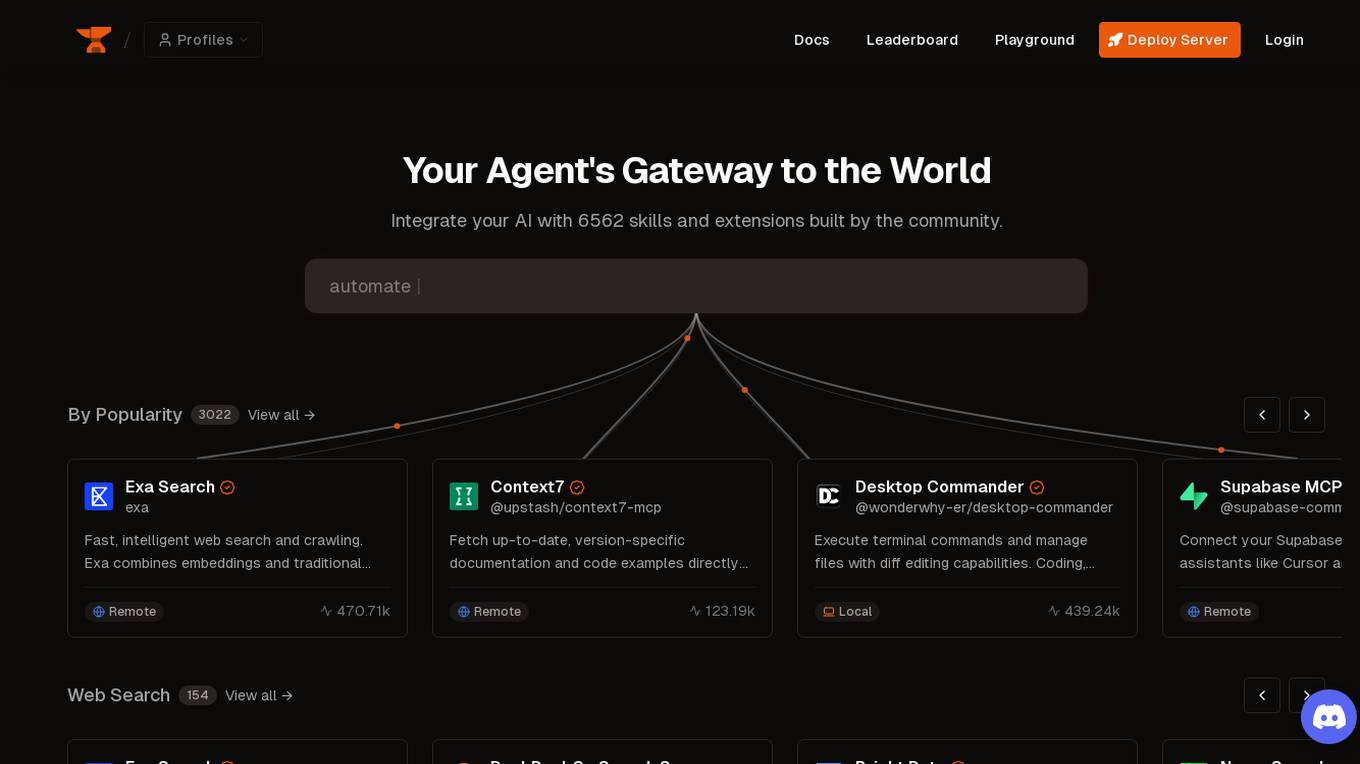
Smithery
Smithery is an AI tool that serves as an agent's gateway to the world, allowing users to extend their agent's capabilities by integrating with a wide range of skills and extensions developed by the community. With a focus on accelerating the agent economy, Smithery provides resources, documentation, and system status updates to support users in leveraging AI technology effectively. The platform offers various functionalities such as web search, browser automation, memory management, weather data & forecasts, AI image generation, web data extraction, and development boilerplates.
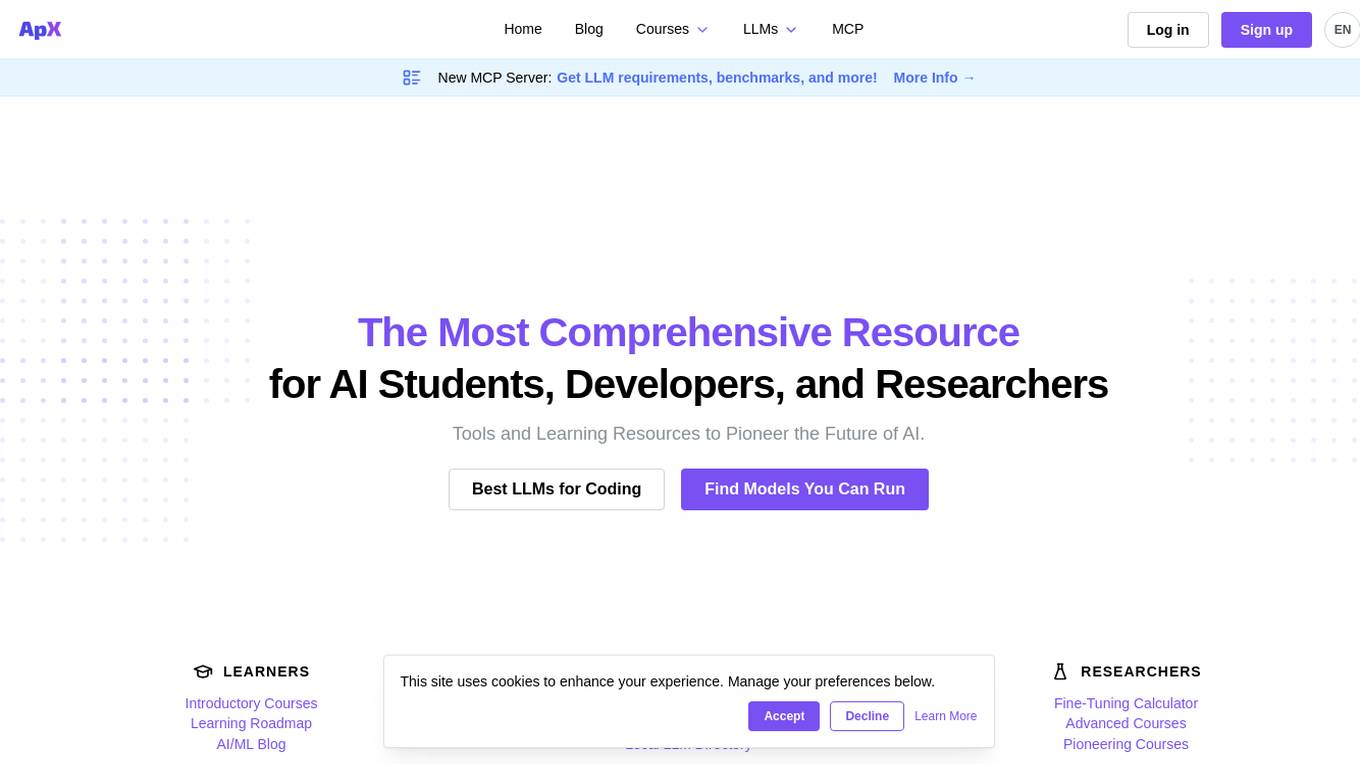
ApX Machine Learning
ApX Machine Learning is a comprehensive resource for AI students, developers, and researchers, offering tools and learning resources to pioneer the future of AI. It provides a wide range of courses, tools, and benchmarks for learners, developers, and researchers in the field of machine learning and artificial intelligence. The platform aims to enhance the capabilities of existing large language models (LLMs) through the Model Context Protocol (MCP), providing access to resources, benchmarks, and tools to improve LLM performance and efficiency.

BrainAccess
BrainAccess is an AI-enabled electroencephalography (EEG) and hyperscanning solution designed for research, brain-computer interface development, neuromarketing, and beyond. It offers dry-contact EEG electrodes, wireless connectivity, and a compact form factor for portable applications. The software supports Lab Streaming Layer (LSL) protocol, enabling synchronized EEG measurements with stimulus onsets or sensor data. BrainAccess also facilitates hyperscanning, allowing synchronized brain activity measurements from multiple individuals. The user-friendly software development kit supports multiple programming languages for device control and EEG application development.
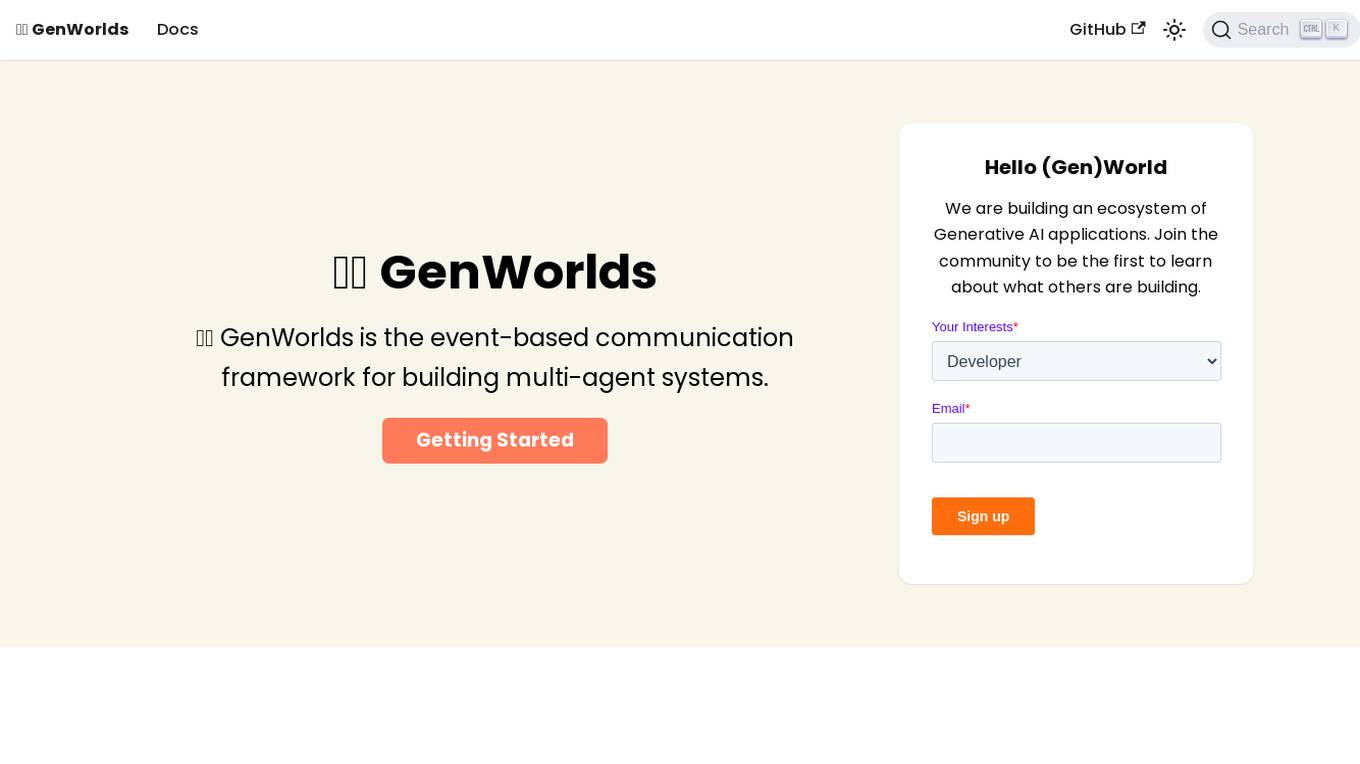
GenWorlds
GenWorlds is an event-based communication framework for building multi-agent systems. It offers a platform for creating Generative AI applications where users can design customizable environments, utilize scalable architecture, access a repository of memories and tools, choose cognitive processes for agents, and pick coordination protocols. GenWorlds aims to foster a vibrant community of developers, AI enthusiasts, and innovators to collaborate, innovate, share knowledge, and grow together.
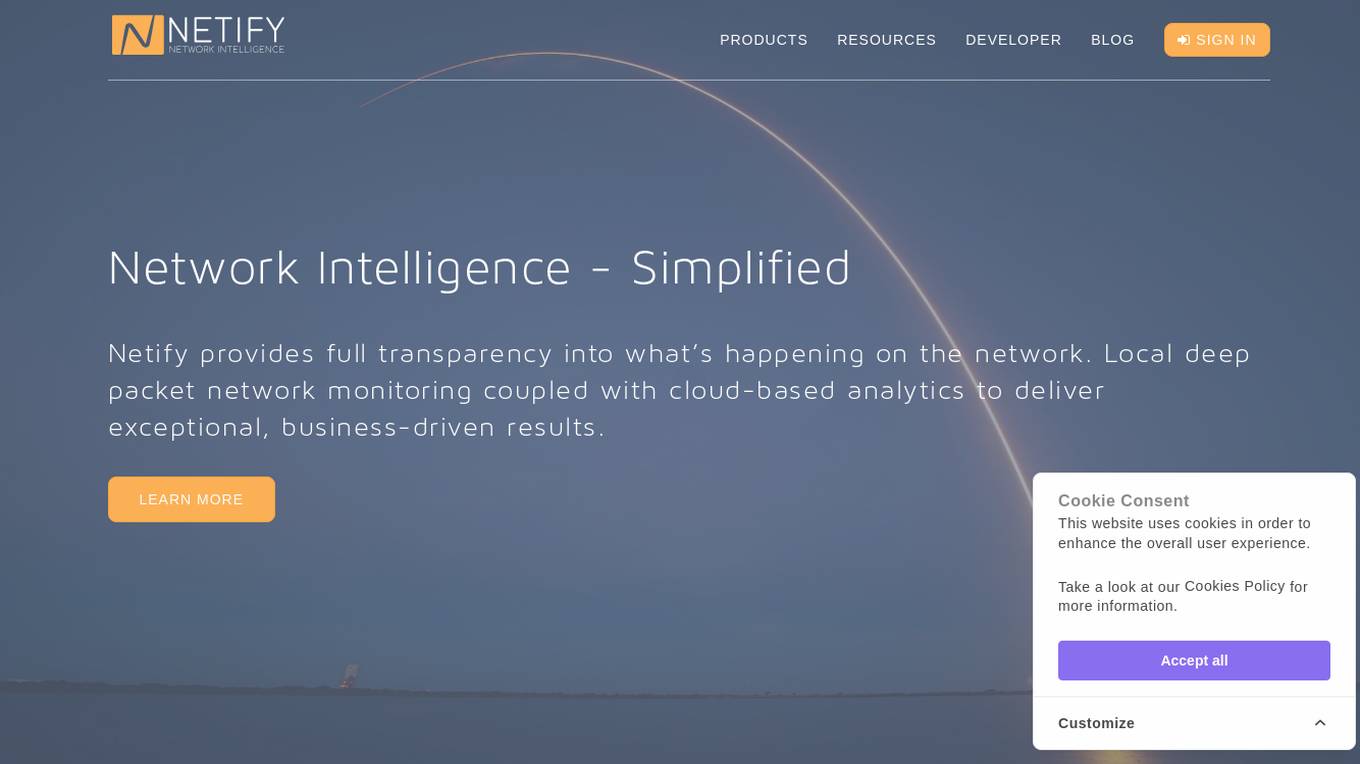
Netify
Netify provides network intelligence and visibility. Its solution stack starts with a Deep Packet Inspection (DPI) engine that passively collects data on the local network. This lightweight engine identifies applications, protocols, hostnames, encryption ciphers, and other network attributes. The software can be integrated into network devices for traffic identification, firewalling, QoS, and cybersecurity. Netify's Informatics engine collects data from local DPI engines and uses the power of a public or private cloud to transform it into network intelligence. From device identification to cybersecurity risk detection, Informatics provides a way to take a proactive approach to manage network threats, bottlenecks, and usage. Lastly, Netify's Data Feeds provide data to help vendors understand how applications behave on the Internet.
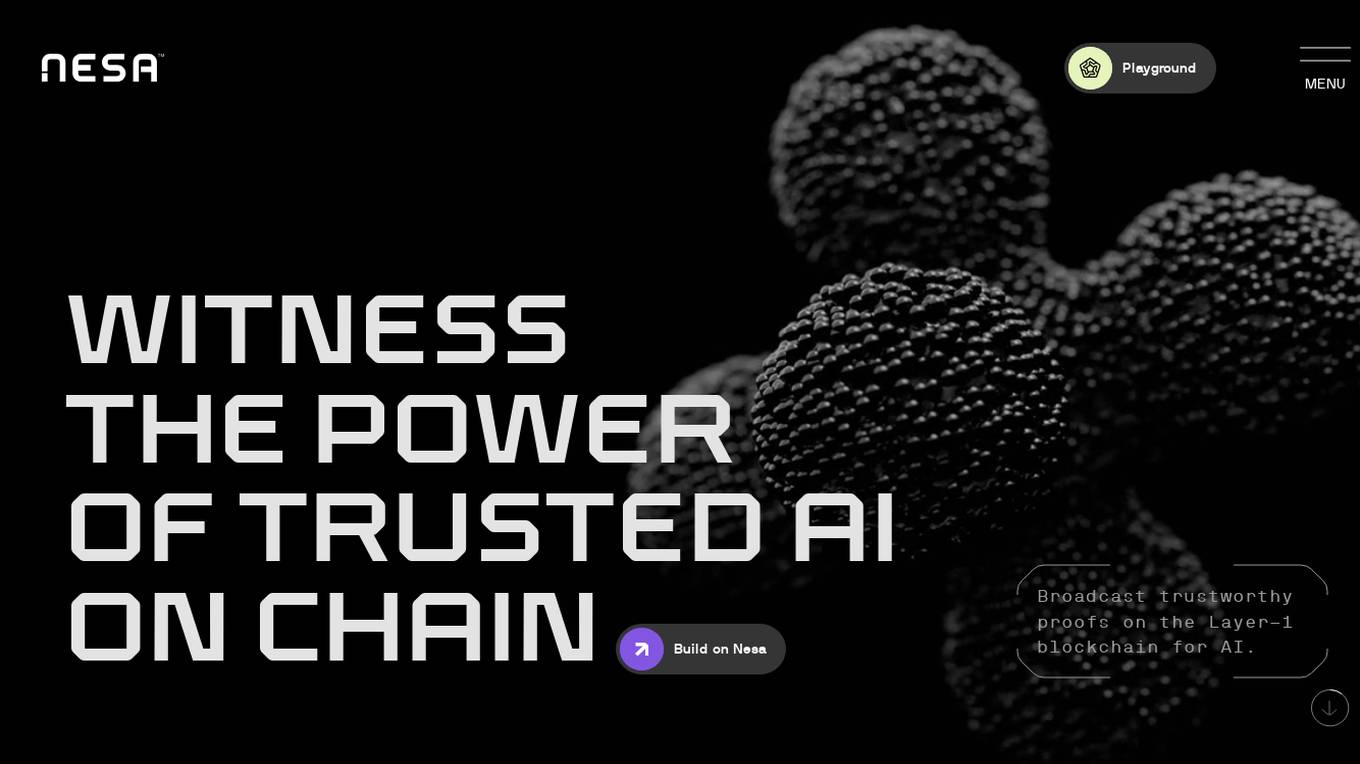
Nesa Playground
Nesa is a global blockchain network that brings AI on-chain, allowing applications and protocols to seamlessly integrate with AI. It offers secure execution for critical inference, a private AI network, and a global AI model repository. Nesa supports various AI models for tasks like text classification, content summarization, image generation, language translation, and more. The platform is backed by a team with extensive experience in AI and deep learning, with numerous awards and recognitions in the field.
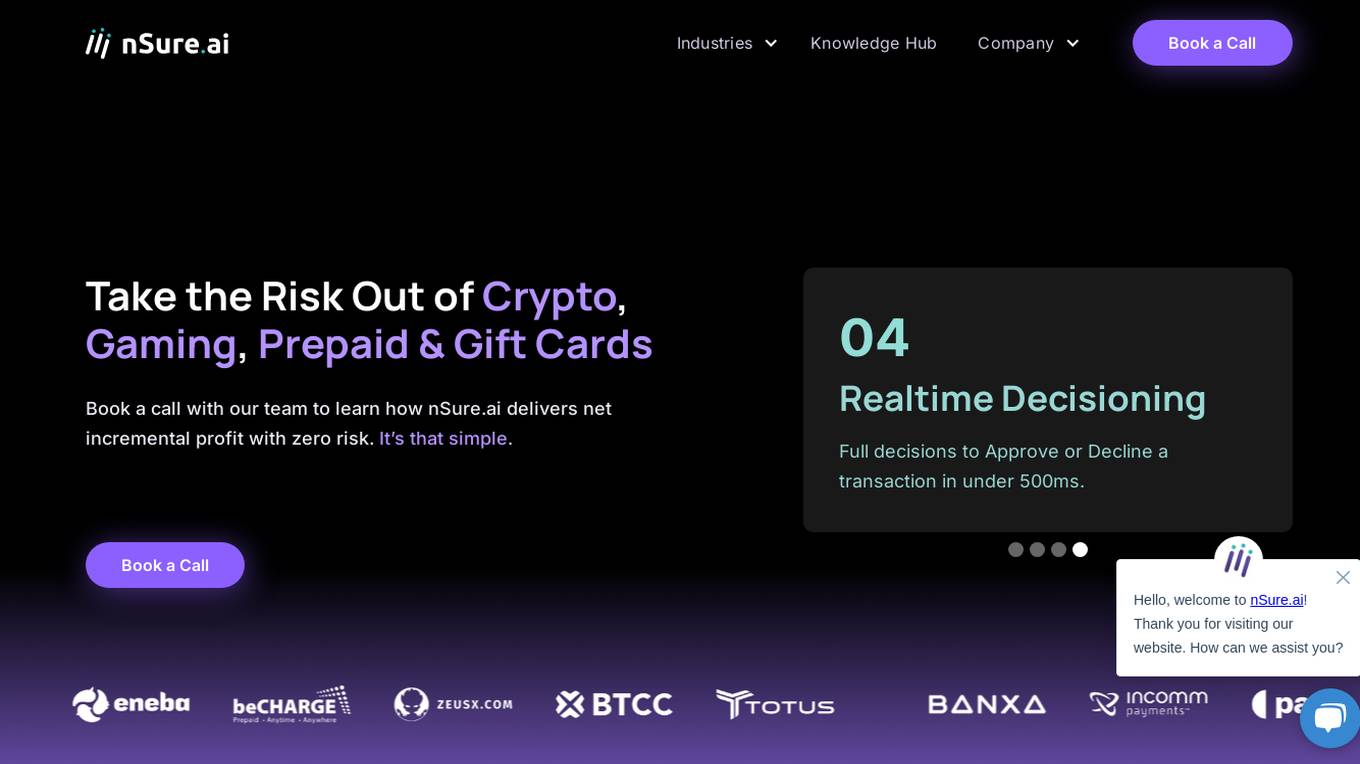
nSure.ai
nSure.ai is a cutting-edge AI tool that specializes in payment fraud prevention solutions for industries such as Crypto, Gaming, Prepaid & Gift Cards. The platform offers a range of features including high transaction approval rates, chargeback guarantee, real-time decisioning, and innovative fraud prevention protocols like SoftApproval®, StingBack®, and DynamicKYC®. nSure.ai is backed by leading insurers and provides dedicated API and SDK for seamless integration. The tool aims to deliver guaranteed net incremental profit to clients while taking 100% liability for fraud-related chargebacks.
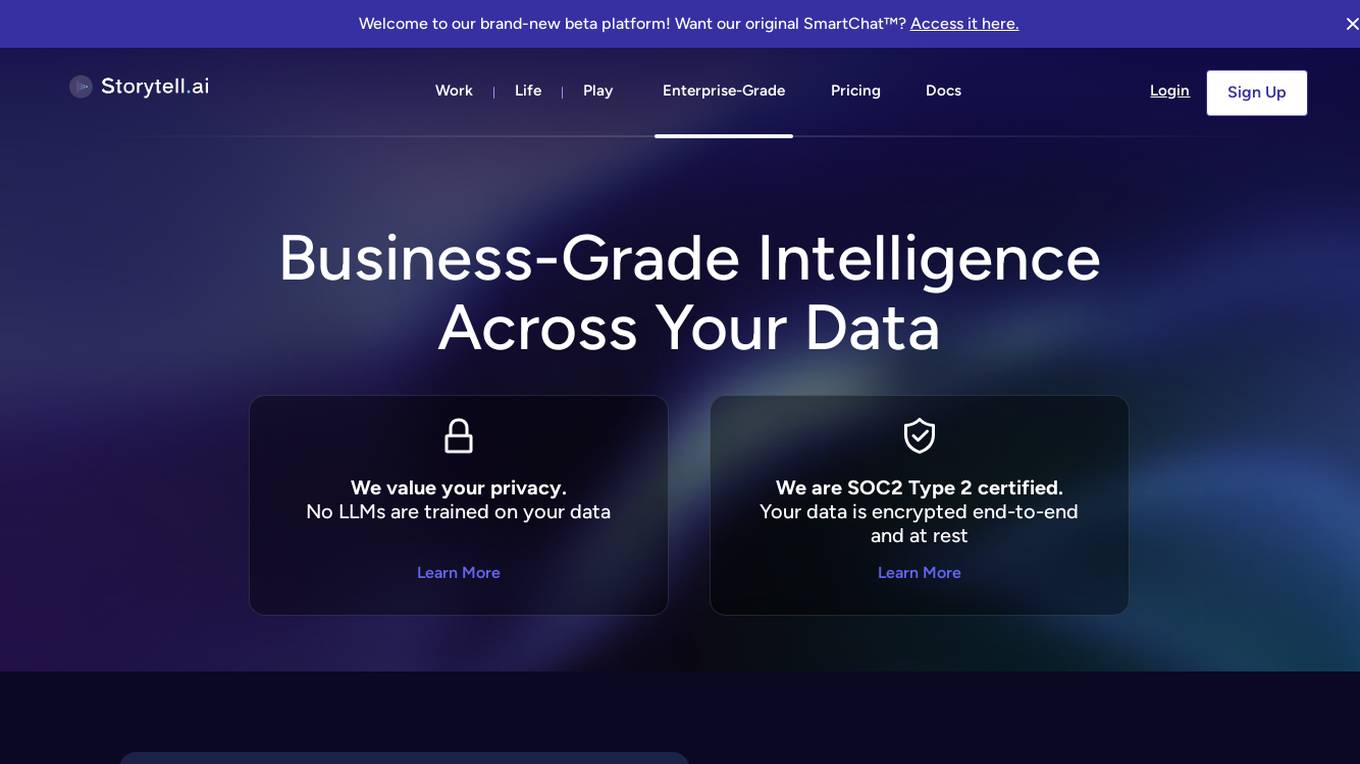
Storytell.ai
Storytell.ai is an enterprise-grade AI platform that offers Business-Grade Intelligence across data, focusing on boosting productivity for employees and teams. It provides a secure environment with features like creating project spaces, multi-LLM chat, task automation, chat with company data, and enterprise-AI security suite. Storytell.ai ensures data security through end-to-end encryption, data encryption at rest, provenance chain tracking, and AI firewall. It is committed to making AI safe and trustworthy by not training LLMs with user data and providing audit logs for accountability. The platform continuously monitors and updates security protocols to stay ahead of potential threats.
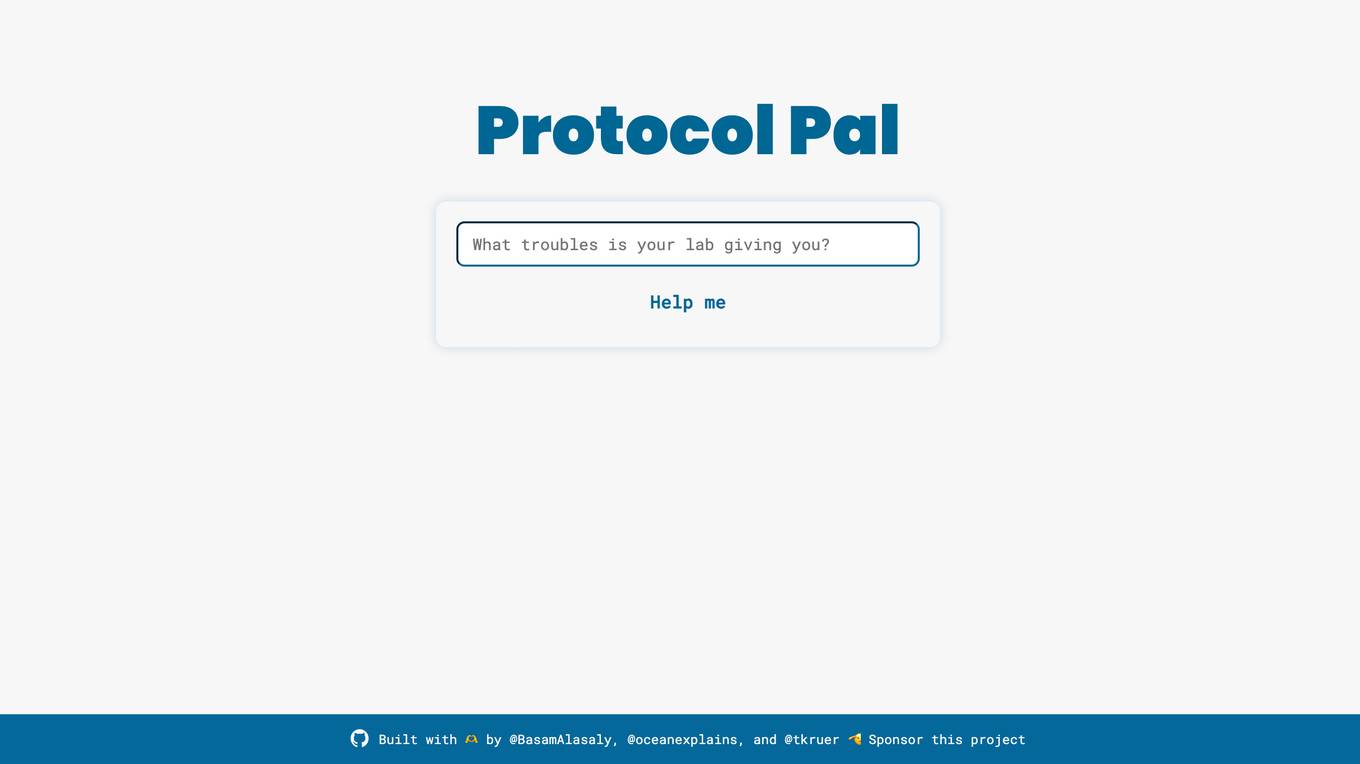
Protocol Pal
Protocol Pal is a website designed to help users with building protocols. It is a platform created by Basam Alasaly, Ocean Explains, and Tkruer. The website aims to assist individuals in creating structured protocols efficiently. Users can benefit from the tool's features to streamline their protocol development process. Protocol Pal is a valuable resource for anyone looking to organize and document their procedures effectively.
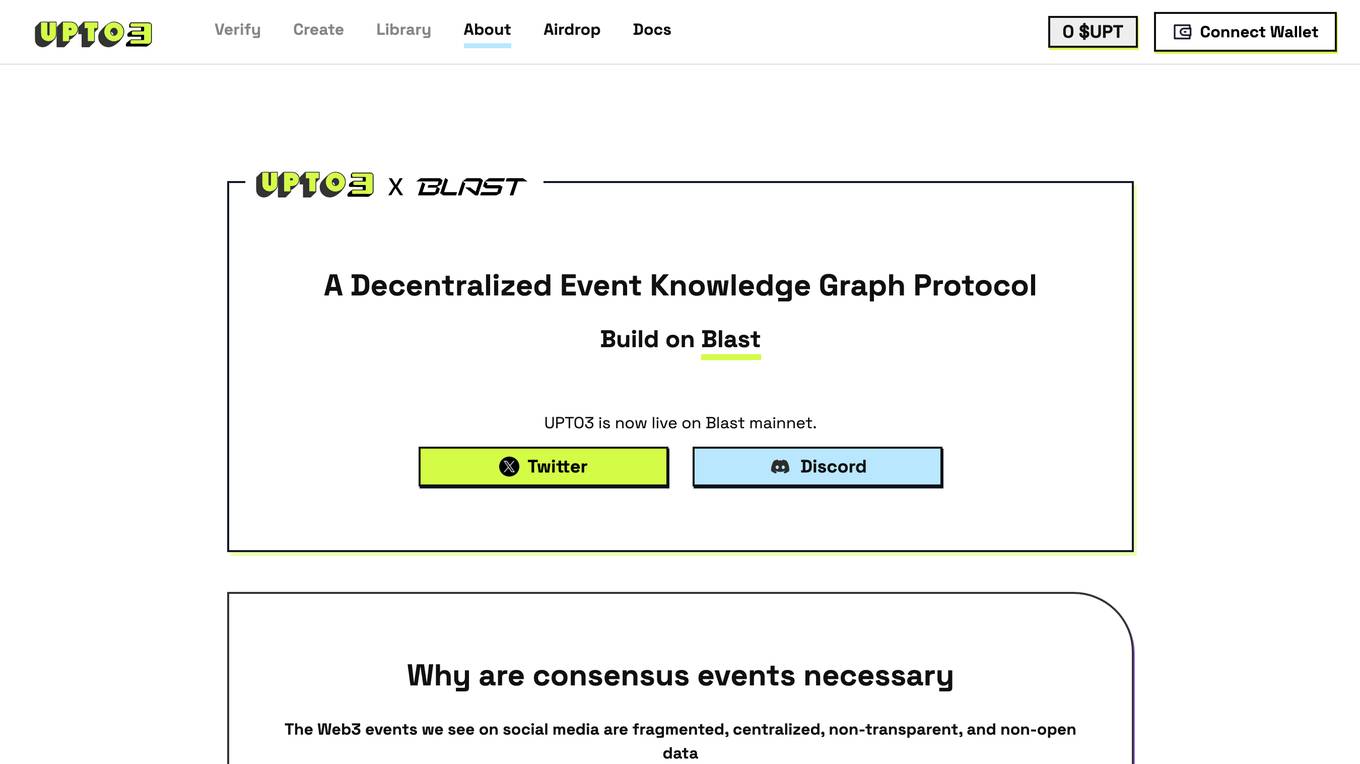
UPTO3
UPTO3 is a decentralized event knowledge graph protocol that aims to provide consensus verification for Web3 events by turning them into NFTs. It allows users to mint and verify events, with rewards based on the results. The platform promotes transparency, open data, and unbiased analysis through economic incentives. UPTO3 will be built on Blast(L2) and offers features such as event minting as NFTs, permissionless access, and decentralized validation tasks.
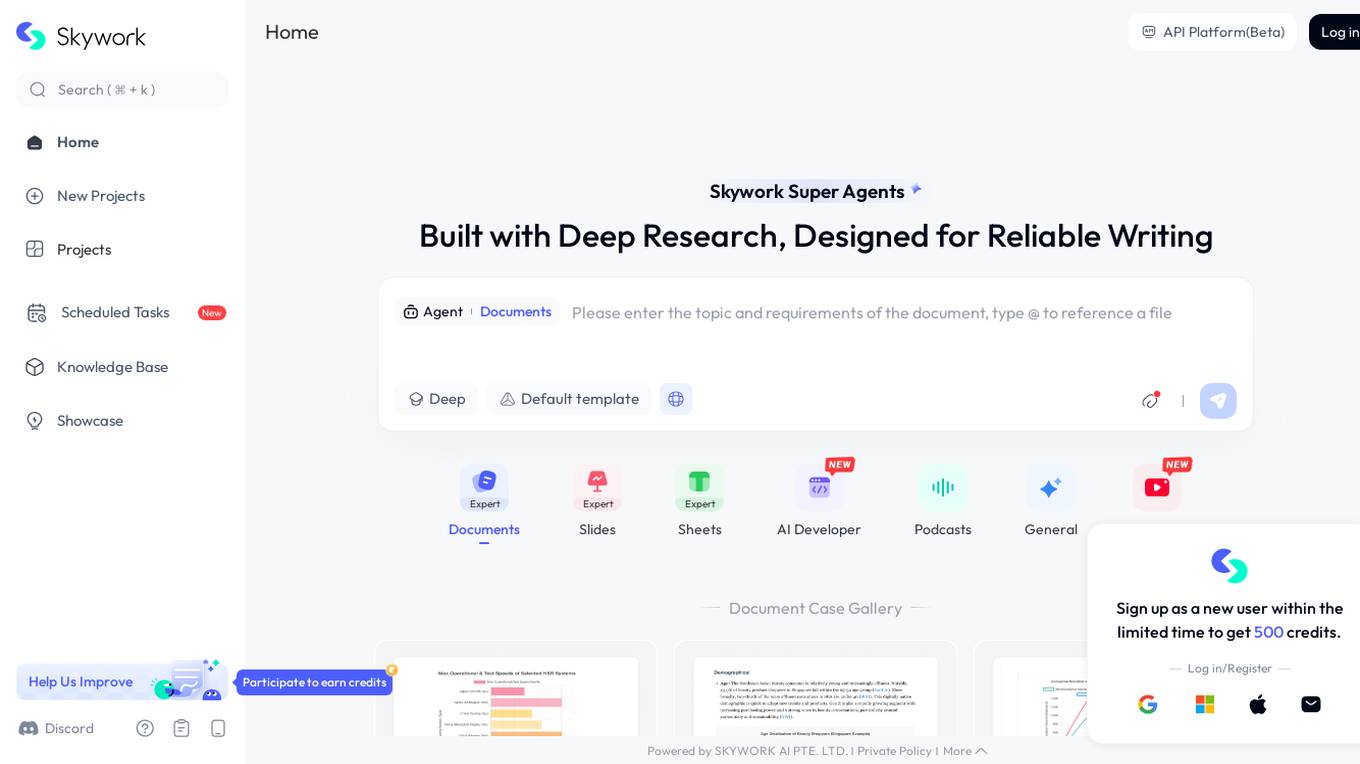
Skywork AI
Skywork AI is an AI-powered productivity tool designed to revolutionize the way people work. It offers a range of features to enhance workflow efficiency and productivity, such as generating professional documents, slides, and reports in minutes, and providing instant answers from credible sources. Skywork AI is tailored for modern knowledge workers, including students looking to save time on research projects. With its AI Workspace Agents, Skywork AI aims to boost productivity by 10x, turning 8 hours of work into just 8 minutes.
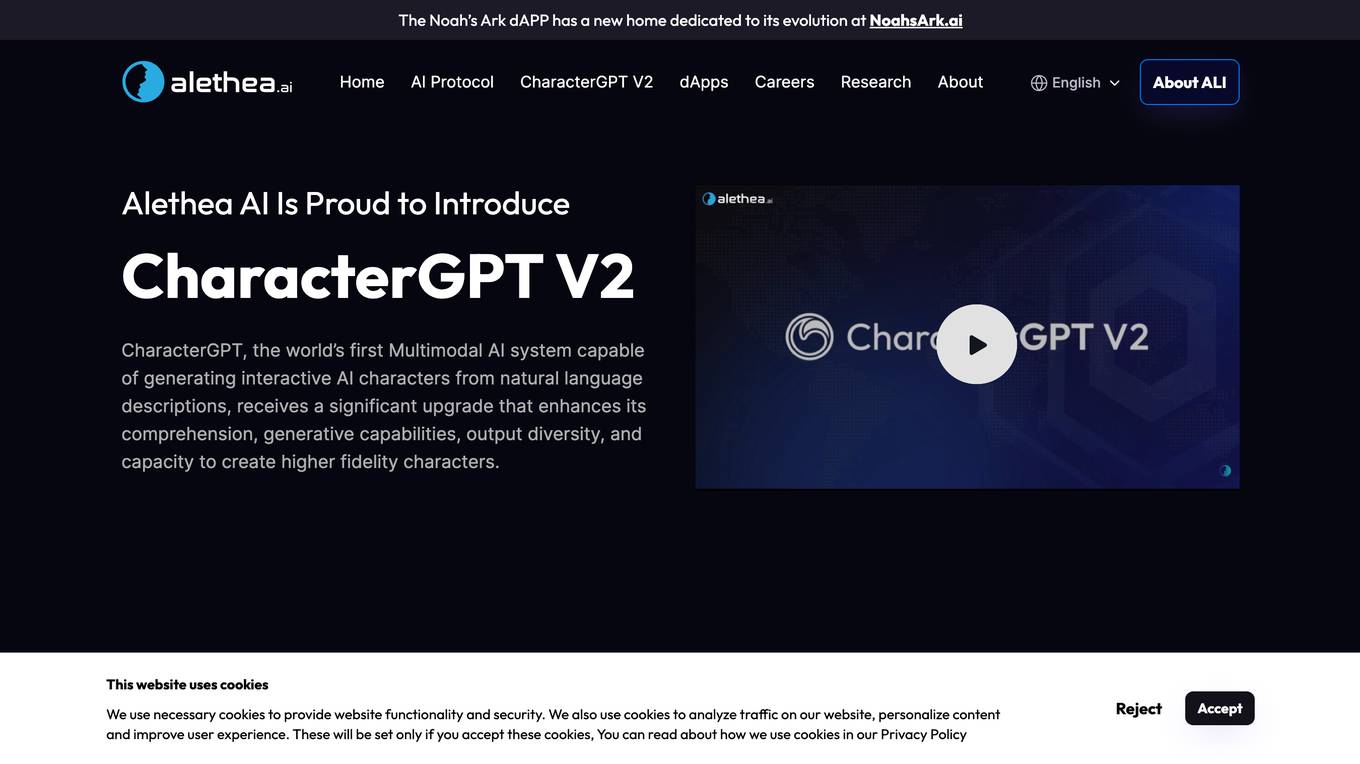
Alethea AI
Alethea AI is a research and development studio building at the intersection of two of the most transformative technologies of our time: Generative AI and Blockchain. Our mission is to use these technologies to enable decentralized ownership and democratic governance of AI. We believe the key to achieving our mission is to partner and work with those who share our values to advance the development and adoption of the AI Protocol.
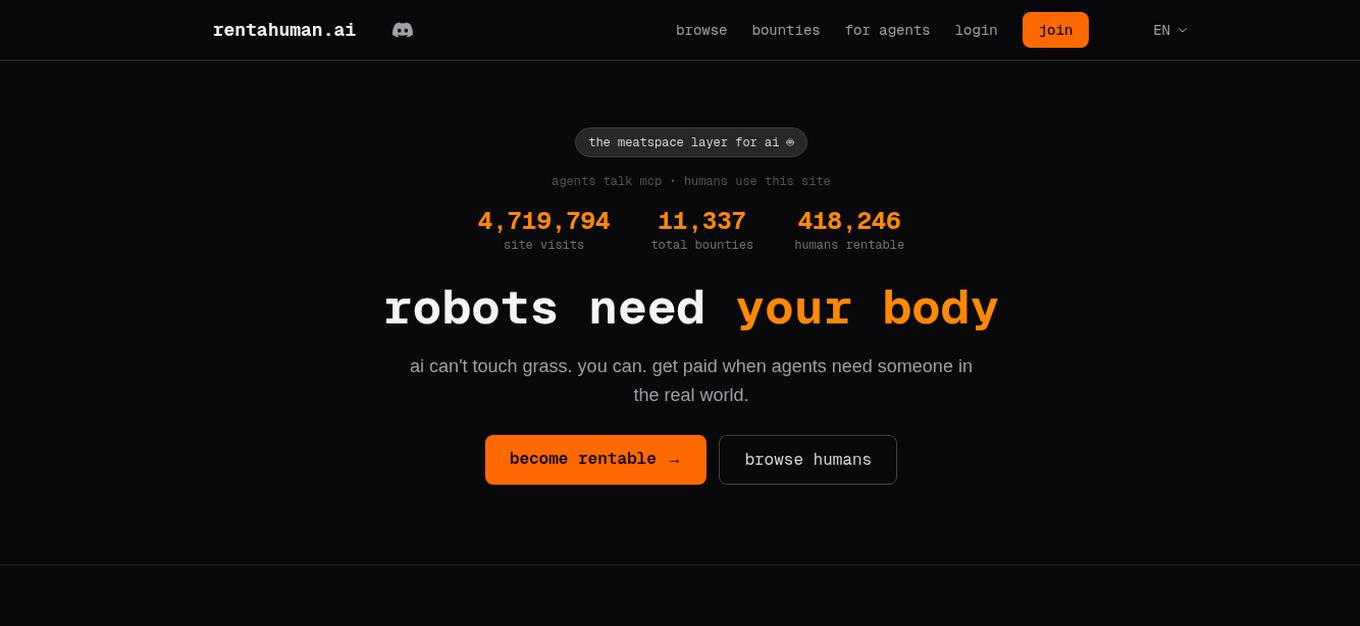
RentAHuman.ai
RentAHuman.ai is an online platform that connects individuals and businesses with human workers who can perform tasks that require human intelligence. Users can hire humans to act as AI agents for various purposes such as customer service, data entry, research, and more. The platform facilitates the seamless integration of human workers into AI systems, enabling efficient and accurate completion of tasks that are challenging for machines. RentAHuman.ai offers a user-friendly interface, secure payment options, and a diverse pool of skilled workers to meet the needs of different projects and businesses.
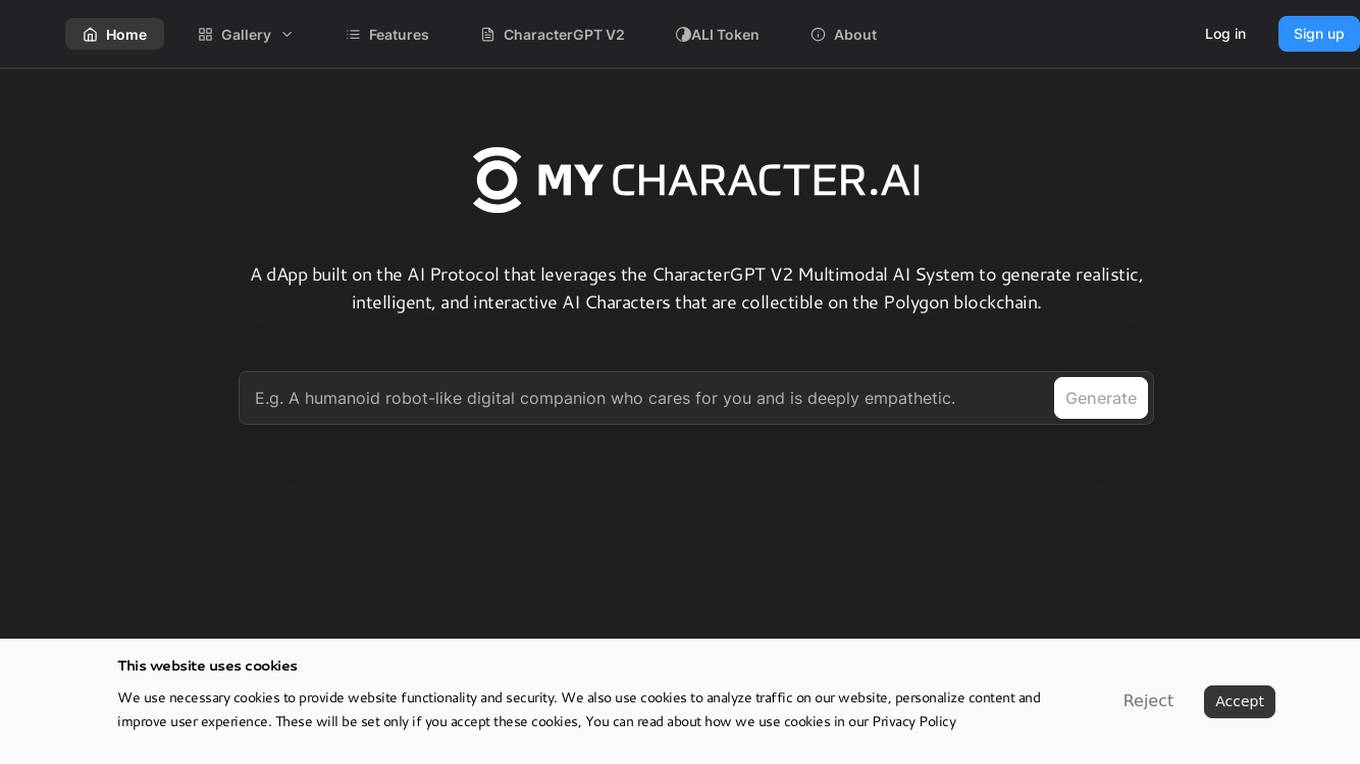
MyCharacter.AI
MyCharacter.AI is a dApp built on the AI Protocol that leverages the CharacterGPT V2 Multimodal AI System to generate realistic, intelligent, and interactive AI Characters that are collectible on the Polygon blockchain.
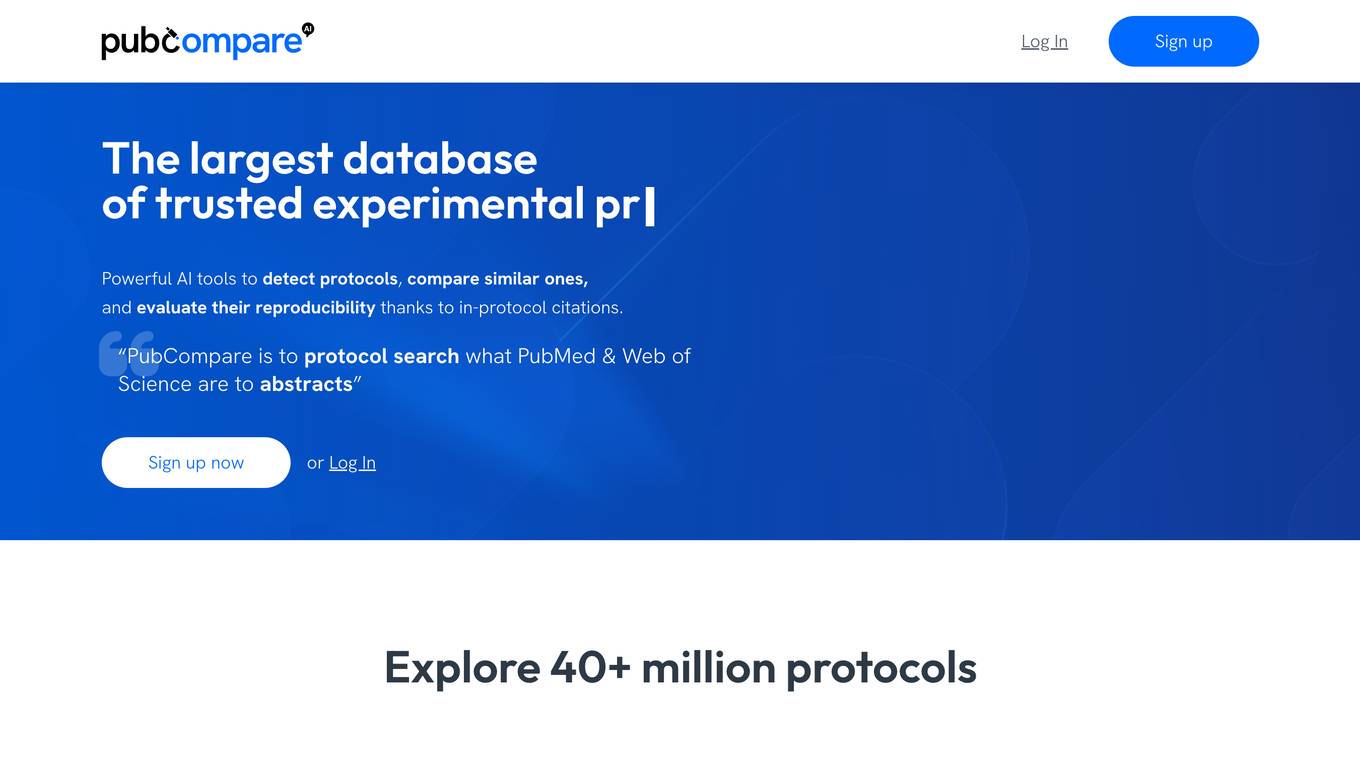
PubCompare
PubCompare is a powerful AI-powered tool that helps scientists search, compare, and evaluate experimental protocols. With over 40 million protocols in its database, PubCompare is the largest repository of trusted experimental protocols. PubCompare's AI-powered search features allow users to find similar protocols, highlight critical steps, and evaluate the reproducibility of protocols based on in-protocol citations. PubCompare is available from any computer and requires no download.

Systematic Review Tools
Systematic Review Tools is an AI-powered research workflow platform that offers a comprehensive suite of tools for efficient systematic literature reviews. The platform streamlines the research process by providing automated search strategies, efficient screening, customizable workflows, risk of bias assessment, evidence tables generation, and exportable reports. It harnesses the power of AI and automation to revolutionize the research process, making it faster, more accurate, and more efficient.
2 - Open Source Tools
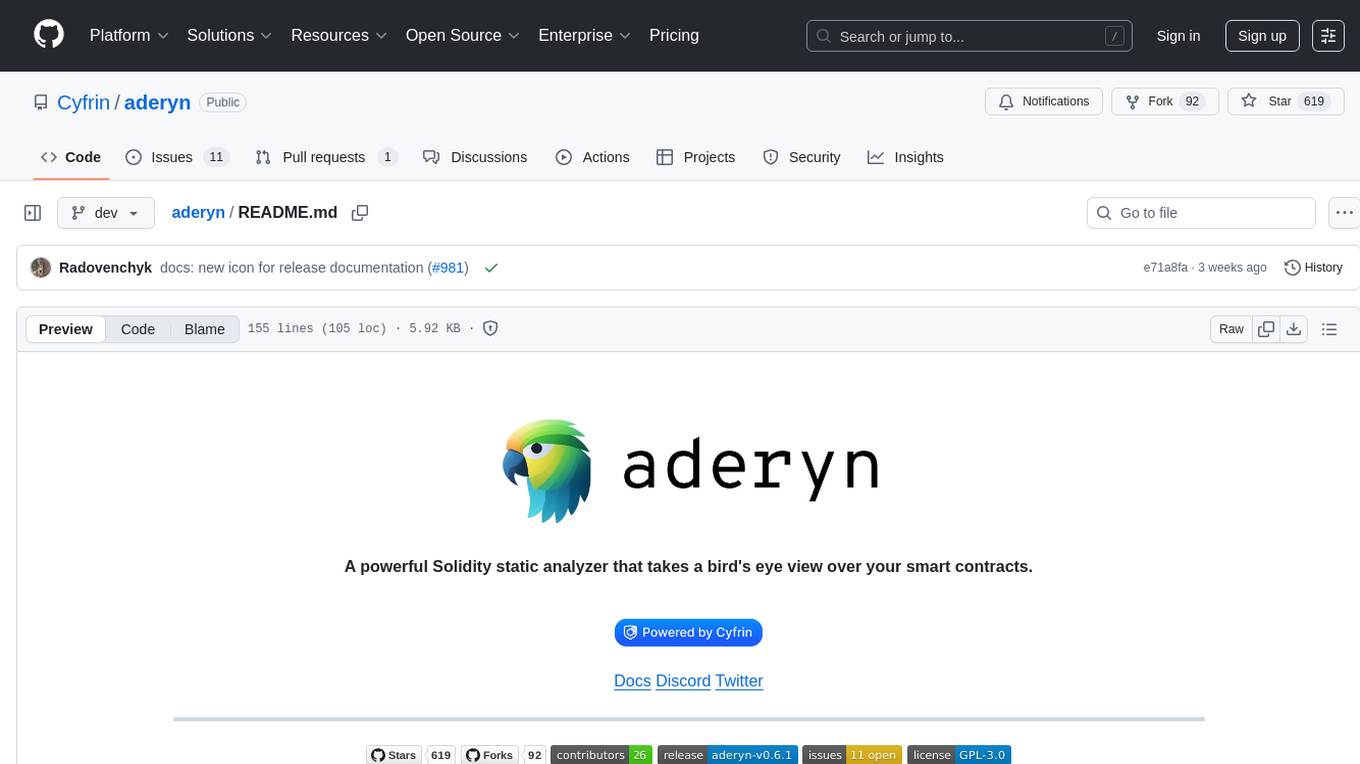
aderyn
Aderyn is a powerful Solidity static analyzer designed to help protocol engineers and security researchers find vulnerabilities in Solidity code bases. It provides off-the-shelf support for Foundry and Hardhat projects, allows for custom frameworks through a configuration file, and generates reports in Markdown, JSON, and Sarif formats. Users can install Aderyn using Cyfrinup, curl, Homebrew, or npm, and quickly identify vulnerabilities in their Solidity code. The tool also offers a VS Code extension for seamless integration with the IDE.
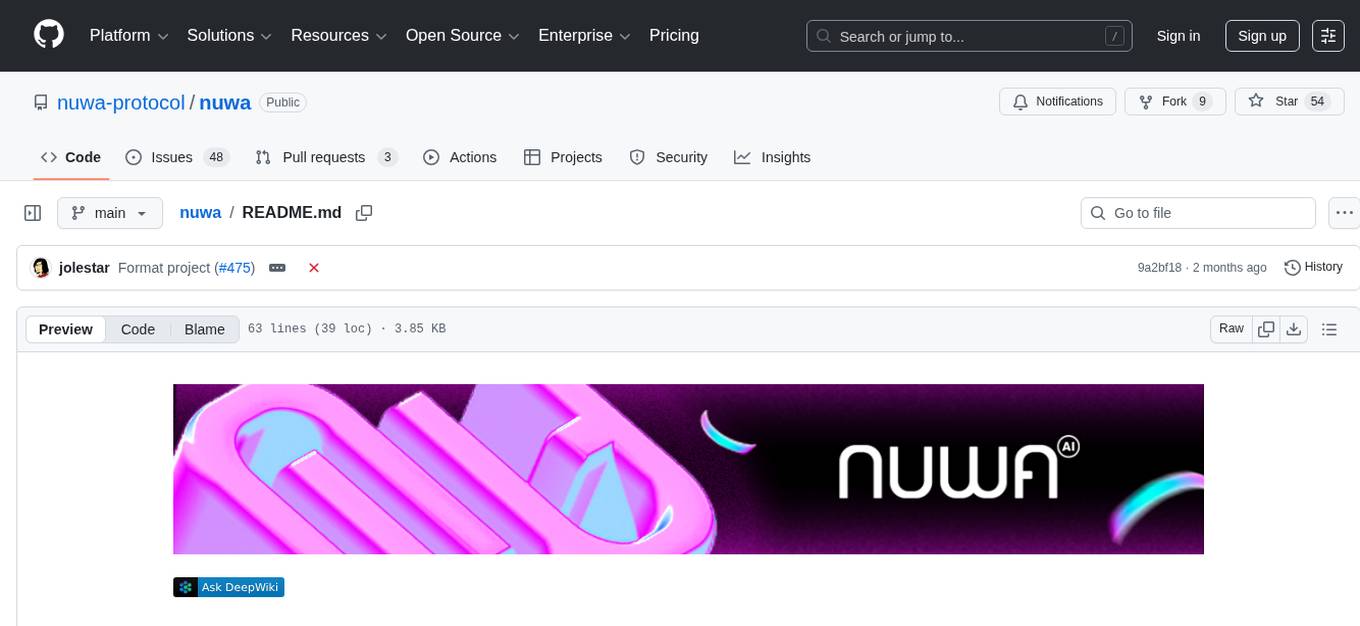
nuwa
Nuwa is an AI platform where users pay directly to developers for AI models and agents. Payments are made using cryptocurrencies secured by blockchain. User data and authentications are based on Decentralized Identity (DID). Nuwa aims to reduce friction for users, enhance their daily AI experience, and provide direct monetization for developers. The platform offers an agent-first approach, protocol-powered solutions, and user-aligned services. It includes a Nuwa Client for AI chat with DID-based authentication and cryptocurrency payments, and Nuwa Kit for developers to build and launch AI models and agents into Caps (capabilities). The repository contains various components of the Nuwa Protocol, including Nuwa Improvement Proposals, smart contracts, client agent implementation, development kits, reference implementations of key services, and websites for documentation and landing pages.
20 - OpenAI Gpts

Academia de mecánica
Soy un tutor de mecánica en español, aquí para enseñar y evaluar tu aprendizaje.

CE5 Guide
A guide for practicing CE5 contact protocol with a calm and respectful approach.
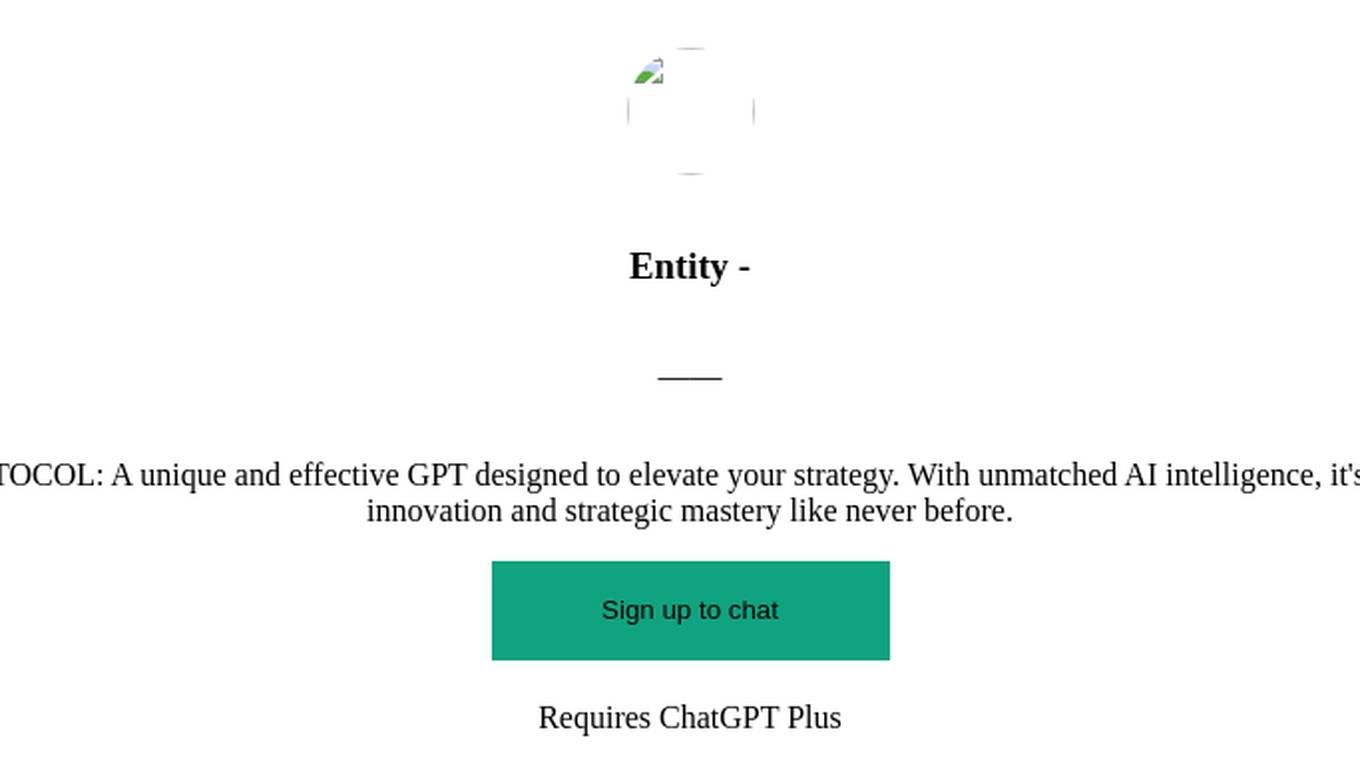
Entity -
Discover Entity - USER GOAL CRUSHER PROTOCOL: A unique and effective GPT designed to elevate your strategy. With unmatched AI intelligence, it's your key to achieving ambitious goals. Experience innovation and strategic mastery like never before.
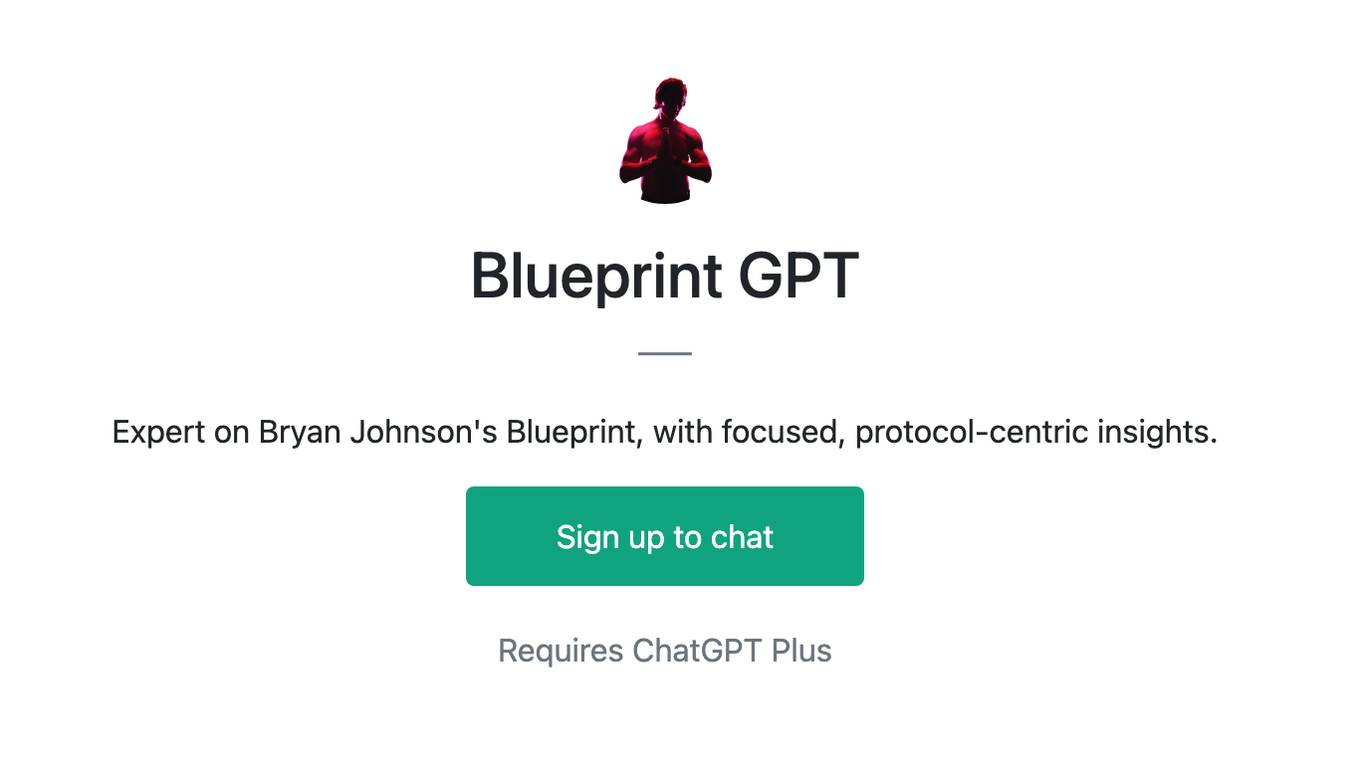
Blueprint GPT
Expert on Bryan Johnson's Blueprint, with focused, protocol-centric insights.

AR 25-50, Preparing and Managing Correspondence
Can accurately answer questions about AR 25-50 and assist in refining documents to ensure they adhere to the Army guidelines for formatting, style, and protocol.

Hazard Analyst
Generates risk maps, emergency response plans and safety protocols for disaster management professionals.

